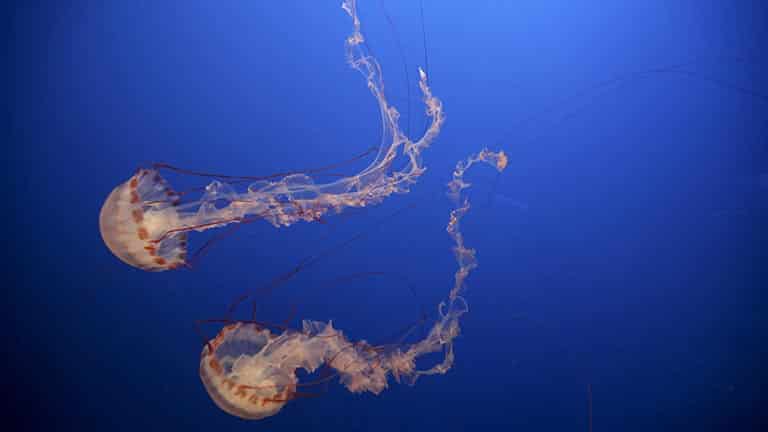
New study from venom expert Professor Geoff Isbister shows not all marine stings are created equal.

Marine stings are not all created equal, a new scientific study published in the Medical Journal of Australia (MJA) has shown.
The study tested the effectiveness of hot water treatment for pain relief of Chironex fleckeri stings – a species of box jellyfish commonly known as the sea wasp.
University of Newcastle venom expert Professor Geoff Isbister said the study expanded on earlier findings from 2006, which proved the highly beneficial effects of hot water immersion for treating blue bottle stings.
“Our theory was that hot water may be effective in treating other jellyfish stings, given its ability to reduce the pain of blue bottle stings,” said Professor Isbister.
“What we discovered was that in the treatment of box jellyfish stings, hot water was actually no better than ice for pain management.”
Found in coastal waters from northern Australia and Papua New Guinea north to the Philippines and Vietnam, the formidable box jellyfish has tentacles up to three metres long, which can deliver painful lesions and in the worst cases can be lethal.
“This clinical study found that the treatment for blue bottle and box jellyfish stings may be different, and that after being treated with vinegar on-site, the pain from box jellyfish stings should continue to be treated with ice,” said Professor Isbister.
Conducted in Darwin, the study was co-authored by Professor Bart Currie from the Menzies School of Health Research.
Professor Isbister leads Australia’s first Centre of Research Excellence (CRE) for venom and antivenom at the University of Newcastle and researches in conjunction with the HMRI cardiovascular research program.
HMRI would like to acknowledge the Traditional Custodians of the land on which we work and live, the Awabakal and Worimi peoples, and pay our respects to Elders past and present. We recognise and respect their cultural heritage and beliefs and their continued connection to their land.

Hunter Medical Research Institute
We’re taking healthy further.
Locked Bag 1000
New Lambton
NSW, Australia, 2305



This site is protected by reCAPTCHA and the Google Privacy Policy and Terms of Service apply.
Copyright © 2024 Hunter Medical Research Institute | ABN: 27 081 436 919
Site by Marlin Communications
